Feeling stuck? Make life a game (and maybe it is...)
On simulation theory, stepping out of loops, and rewriting your code to change the level.
📩 Heads up - Email might clip - click to read the full version online → HERE.
I had a very sweaty day today…
(And not because of the heat wave we’ve been having).
And this time last year, was also very sweaty. But in a different way.
So, this time last year I was raving at NYC Downlow - the best party at Glastonbury.
For those of you who haven’t been, it’s a 1980s NYC Meatpacking-esque pop-up club, with a long snaking queue to get in and once you’re in, you don’t really want to leave.
Drag queens dance in cages and hang off the walls, in front of a heaving crowd of topless men and girls in bikini tops or the closest thing to it. It’s extremely hot and sweaty… but the best music. Last year’s energy was something special and I’ll never forget it.
This year?
I was sweaty and in a bikini again… but a very different vibe.
I was at a hotel in London enjoying a spa day gift I’d kindly been treated to. I enjoyed a relaxing massage and facial where I basically went to a different dimension (i guess there are lots of ways you can have euphoric experiences..!) Then had a healthy lunch and hung out in the sauna and pool area. Heaven.
Did I have a bit of Glasto FOMO? Of course. I’ve always been afflicted with that. But this year I didn’t feel as strong a pang as I thought I would. I felt really content leaning into looking after myself (plus I have some fun to look forward to with more weddings and a potential trip to Amsterdam for Dekmantel).
Anyway - back to wellness!!
I’ve been finding the reset journey I’ve been on has been non-linear.
The overall trajectory is up, but sometimes I feel myself looping or jumping back a few steps, and so have to re-centre and regroup to the recipe (more on this here).
So, I’ve been interested in exploring these loops. Are you really making progress if you sometimes fall back to old habits? What does growth and healing really look like? And can you really break the patterns?
From Sweat to Simulation Theory… naturally.
(It makes sense for me anyway…)
Caveat – the rest of this essay explores themes including simulation theory, soulmates/twin flames, serendipity, with a bit of Hindu spirituality and Shakespeare thrown in. So I’m very aware this will not be everyone’s cup of tea…
Second caveat - if you know a lot about simulation theory already, you might find this piece kind of basic. I’m a beginner, and I’m writing it for people like me – curious, open, and craving new ways of seeing.
But therein lies the beauty of this Substack. I have full editorial control to explore all of my random, whimsical interests and it attracts a small group of people who kind of like this stuff too.
Also – it’s the least judgemental space on the internet.
Ok, I think that’s all my caveats done. On with the show!
What Is Simulation Theory, Really?
I’ve been reading about simulation theory recently, as part of my attempt to understand the universe, life, death, what the hell is going on, etc.
A big part of my reset journey has involved resetting what I read and consume. When I was losing my Dad, I took time off social media, and one side-benefit of that (among many others!) was the shift in content I was consuming. I went from scrolling short viral clips to reading more books, from algorithmic dopamine to uncurated curiosity. I started hanging out in the science section of my bookshop for answers. Not because I abandoned poetry or philosophy, but because I was starting to find a weird kind of poetry in science itself.
Also, it was freeing to release the shackles I’d given myself all my life, of being a “literature person”, not into maths and science.
We give ourselves these limiting labels at an early age and a big part of my journey has been unlearning some of them.
I’ve been thinking about death.
Not in a morbid way, honestly. Just seeing my Dad dying up-close invited me to explore it. I’ve been turning to writers, thinkers and scientists to help me understand some theories about life and existence.
That’s how I found Kelly Clancy’s Playing with Reality. And it’s how I started seeing simulation theory not just as a sci-fi thought experiment, but as a toolkit for getting unstuck.
Let’s start with the basics – then I’ll bring in some poetry and practices for us, I promise :D
The Basics, in Plain Language
Simulation theory proposes that we might be living inside a computer-generated reality, created by a far more advanced civilisation. Philosophers and scientists take it seriously as a way of exploring consciousness, technology, and the nature of reality.
Bostrom's Trilemma:
Civilisations never reach a point where they can run realistic simulations (they go extinct first)
Civilisations that do reach that point aren’t interested in running ancestor simulations
Or – we are almost certainly living in a simulation
If 1 and 2 are unlikely (which I think evidence suggests they are), then 3 becomes more probable.
Our Tech Already Mirrors the Theory
So, why would anyone run a simulation?
To study history or consciousness
For entertainment (like VR or video games)
For experimentation without real-world consequences
A super-advanced society might simulate realities the same way we simulate weather, pandemics, or planetary systems. What’s wild is: we’re already doing it ourselves.
Tech parallels:
Virtual worlds (The Sims, Minecraft)
AI and machine learning
Deepfakes, VR, and brain-computer interfaces
Simulation theory isn’t a leap – it’s a trajectory.
[ new hobby: making collages with Pinterest and Canva xx ]
Rethinking Reality: Kelly Clancy’s Insight
Clancy’s lens is rooted in neuroscience and physics. One of her core ideas is that our brains don’t perceive reality directly. Instead, they build internal models of it – constant predictions updated by sensory feedback.
Reality, then, is not a fixed thing we see. It’s a “controlled hallucination” that helps us survive.
And once you realise this? You can start to question the model itself. The code. The loop.
What If You’re Not Stuck – Just in a Loop?
I’ve had periods of feeling really stuck. And this theory helped me name what I was experiencing.
I wasn’t stuck because of my external reality. I was stuck because of a simulation loop my mind was running – one based on old beliefs, emotional patterns, and unchallenged predictions.
Clancy calls this a self-reinforcing feedback cycle: you believe something, act accordingly, and get results that confirm the belief. But by introducing awareness – a glitch in the code – you can break the loop.
In predictive processing neuroscience, your brain is a simulation machine. It’s constantly generating models of the world to anticipate what will happen.
Rumination is what happens when the model gets stuck – it loops through unresolved scenarios trying to find safety or resolution.
Think of it as a kind of psychic loading screen: your mind is attempting to “complete” an emotional task without the proper input. Like a program running faulty code.
Simulation theory helps you see this not as a flaw in character – but as an algorithm you can exit.
If you’ve ever done a course of Cognitive Behavioural Therapy, you’ll be aware of these thought loops. CBT aims to identify and interrupt distorted thinking patterns that generate self-fulfilling outcomes.
In this kind of therapy, you learn to examine the underlying beliefs driving your emotional responses – many of which formed early in life and now run automatically, like background code.
By bringing these patterns into conscious awareness, you create the possibility for a different action, and thus, a different result. It’s like debugging your own simulation.
Glitches, Mirrors, and Soul-Level Shifts
Have you ever met someone where the connection feels kind of cosmic? Or you’ve experienced something together that’s hard to explain or quantify?
I’ve actually experienced a few of these. Where we both felt it but couldn’t quite put it into words – moments of serendipity or a feeling like there was a glitch in the matrix.
Some connections feel like they were coded into the simulation. Like meeting a twin flame – an energetic mirror who glitches the game, crashes your system, and forces a soul-level upgrade. These connections sometimes don’t make logical sense. But they shake you awake. They expose the loops you’re in.
I believe when you encounter intense connections with people, it’s for some kind of reason – even if you don’t fully understand it at the time.
Some people aren’t meant to stay but the expansion is. The connection catalyses profound change in both of you – and the emotional charge is a clue or an invitation to some kind of reset.
In simulation theory terms? They’re not a distraction. They’re a debug. A trigger to rewrite your story.
The key is to shift from being a passive receiver to stepping outside and observing it.
The Divine Game
In Hindu philosophy, there's a word for this: Lila – the play of creation. As Kendra Crossen Burroughs writes, "To awakened consciousness, the entire universe, with all its joys and sorrows, pleasures and pains, appears as a divine game, sport, or drama. It is a play in which the one Consciousness performs all the roles."
What simulation theory calls a program, Lila calls a play. But the invitation is the same: to wake up inside the story.
To realise you're not just a piece on the board – you’re part of the intelligence that dreamed up the game.
Which means you can play differently. More consciously. With more curiosity, more courage, more grace.
It also means you can question the rules.
As one passage puts it: “A game rewards its players for adopting the precepts from which it's built.” If you believe the game is about scarcity, you’ll act accordingly. If you believe it’s about perfectionism, you’ll exhaust yourself trying to win a level that was never yours to play.
But once you become aware of the operating system, you can ask: What game am I in? And who benefits from me staying here?
This is where the spiritual and the philosophical meet the deeply personal.
Choosing to step out of a role – especially one that kept you safe – isn’t easy. But it’s how you stop performing and start creating.
Play Games You Can Win
In her manifesto New Methods For Women, Sharmadean Reid says women should, “choose games we can win, and if we are focused, we design our own.” Her words hit like a download.
So many of us are playing games stacked against us – systems that reward burnout, scripts that require struggle, dynamics that feel rigged. Especially as women, we’ve inherited rules about how hard things must be to be “deserved.” Reid calls this out as one of the most pervasive myths keeping the old game intact.
But what if the reset isn’t just inner work – it’s refusing to play a game where your thriving is considered cheating?
Simulation theory helps us see this with clarity.
If life is a game, then the question isn’t just how to play better, it’s which game are you playing? And more importantly: who wrote the rules?
I’ve been in situations multiple times in my life where what I’ve been doing is misaligned. Misaligned with my values. Misaligned with my talents. Misaligned with my true nature.
When this happens, everything feels hard. And not hard in an exciting challenge way (I love that). Hard on a soul level. My body feels out of sorts. I get stomach aches, tension in my jaw, I wake up anxious, my energy feels depleted, I attract negative occurrences.
Conversely, when I’m doing things in flow, magical serendipitous things happen. I meet cool people who align with my values, offers come to me effortlessly, challenging tasks feel stimulating in the right way.
So, sometimes we need to rewrite the code.
To rewrite your code is to choose your board, your mission, your metric of success.
Reid reminds us it’s not lazy to make life smoother – it’s sovereign.
Then there’s Alain de Botton, reminding us that much of our suffering comes from “playing the wrong game well.” We spend years mastering rules we never agreed to, chasing goals that don’t align with our soul. He offers a quieter, more reflective rebellion: question the scripts. Reclaim your values. Opt out.
Together, these voices echo a single truth:
You are not trapped in one version of life.
You can opt out. You can glitch the matrix. You can rewrite the game.
So If This Is a Game... How Do We Change the Level?
1. Name the Current Level Ask:
What’s the emotional tone here?
What patterns keep repeating?
What lesson have I extracted already?
Reframe: You’re not failing. You’ve mastered this level. Time to move on.
2. Glitch the Loop Awareness breaks the default code. Ask:
Who am I being: player, pawn, or programmer?
What belief is this moment confirming for me?
3. Choose a New Avatar Shift identity:
Name your next evolution (The Oracle? The Architect?)
Dress/act like her
Make decisions as her
4. Program Your Day Like a Dream Architect Every day = new code
Objective: Choose your focus
Power-ups: What boosts your energy?
Battle: What challenge will you creatively face?
Portal moments: Stay open to surprise
5. Collapse Time with Embodiment
Feel the future version of you now.
Let your body feel it
Take one micro-action as that version of you
The Stoics Knew This Too
Yes, I’m jumping around - from sweating to stimulation to the stoics…
This is all about internal mastery – which is the center of Stoicism.
The Stoics believed that while we don’t control the outcomes, we control how we play the throw.
This supports the idea that how you respond to the simulation is more important than the content of the simulation itself.
In simulation terms: You’re constantly rewriting the code based on new information. This is how we exit loops and shift timelines.
Ok, now enough science and onto Shakespeare ;)
The Stage and the Simulation
Shakespeare famously said, “All the world’s a stage, and all the men and women merely players.”
He was meditating on the roles we play in life – how we cycle through archetypes, how predictable and performative our paths can be. But the metaphor maps uncannily onto simulation theory.
Like actors on a stage, we wear masks. We get caught in roles. We forget that we’re allowed to improvise, pivot, or step into a new scene entirely. The awareness that we are playing is what makes us powerful.
Simulation theory, like Shakespeare’s stage, reminds me:
You are not just the role. You’re the awareness playing it.
You can edit the script.
You can change the tone.
You can rewrite the ending.
Final Thought
Simulation theory isn’t about robots or virtual headsets. It’s about waking up inside your own perception. It’s about remembering that your beliefs, emotions, and choices are the code – and you can write new ones.
Whether or not we’re literally living in a simulation doesn’t matter.
What matters is that we’re not helpless. We’re not locked in. We’re not characters stuck in someone else’s plot-line.
We are the dreamers. The designers. The architects.
We get to be both the player and the programmer.
And the next level is loading.
Reset Recommendations
Reading:
This beautiful piece from the New Yorker really resonated.
Listening:
Loyle Garner’s new album.
Seeing:
Immersive art. Obsessed with the melting clocks and sitting in a room surrounded by them felt very poignant as I think a lot about time and impermanence…
I want to hear from you.
Drop me a comment if this resonated!
Thanks for being here,
Katie x



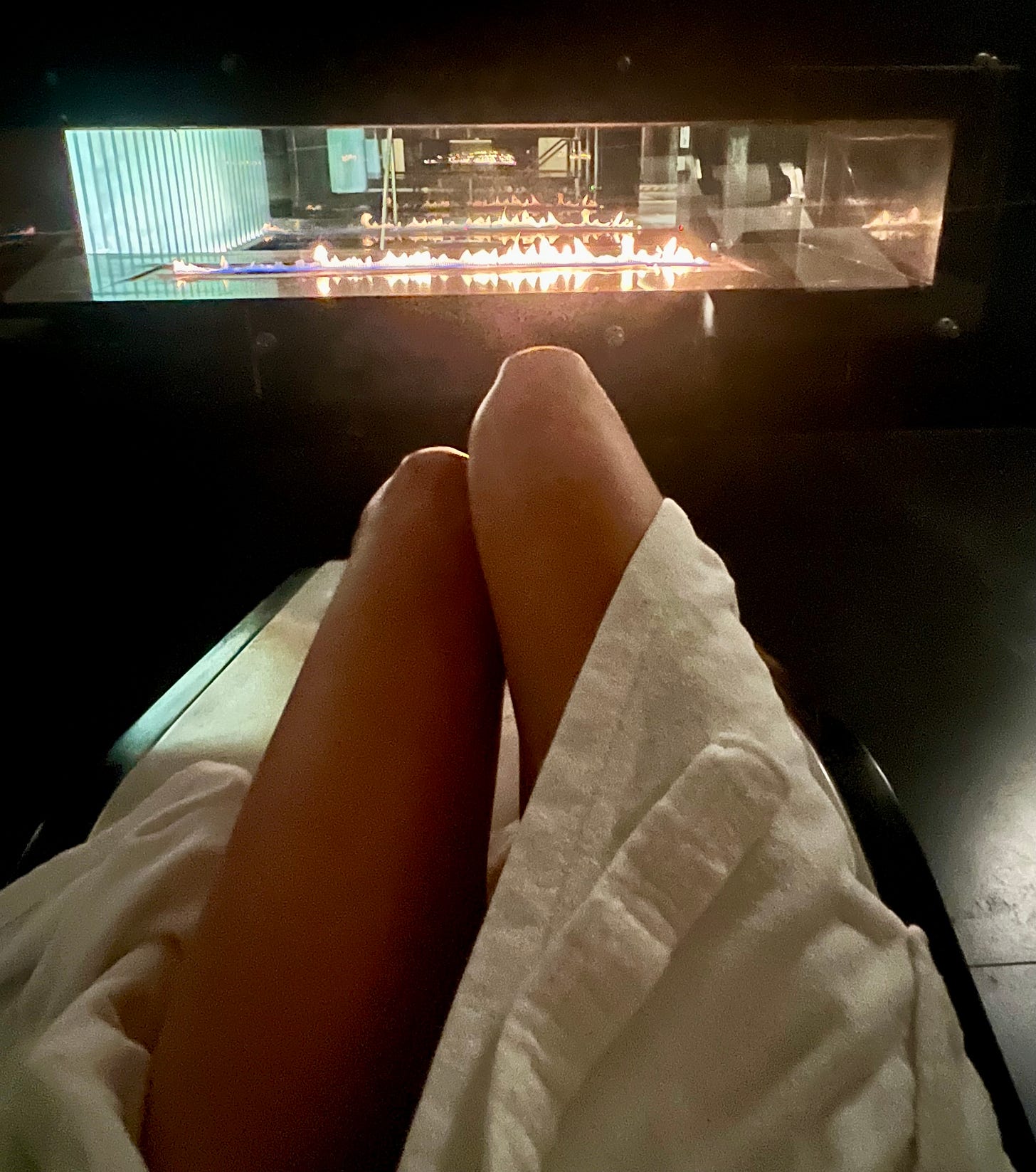
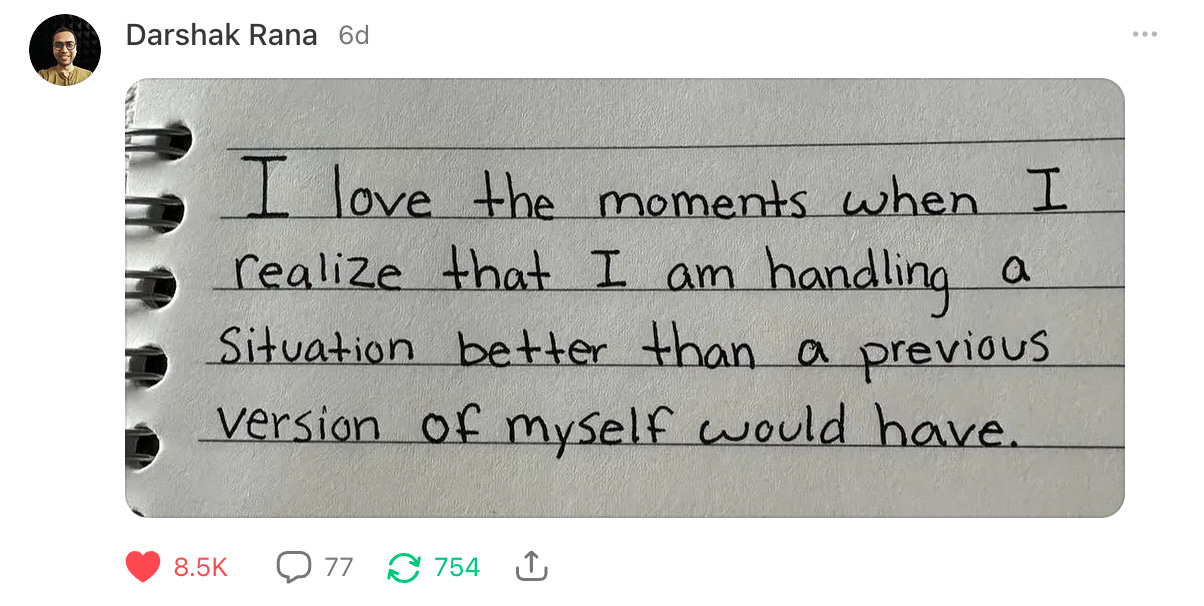
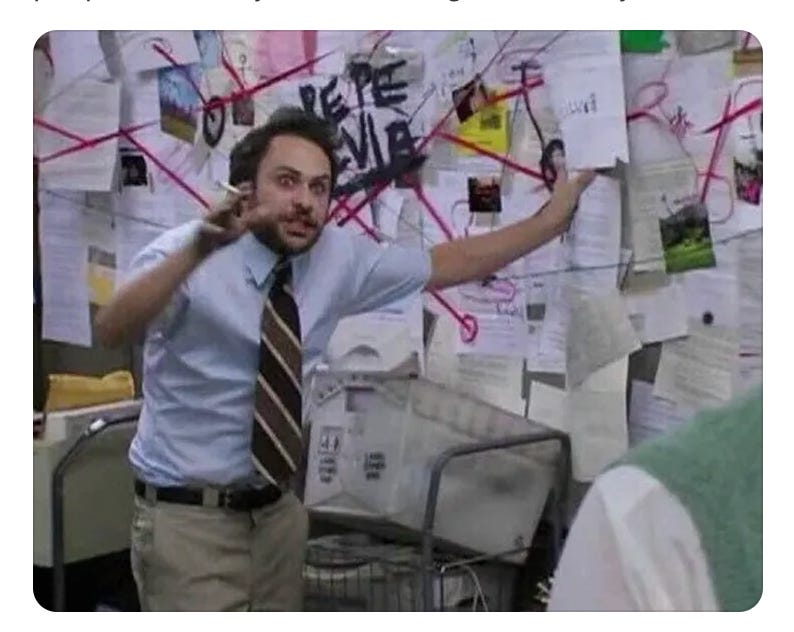

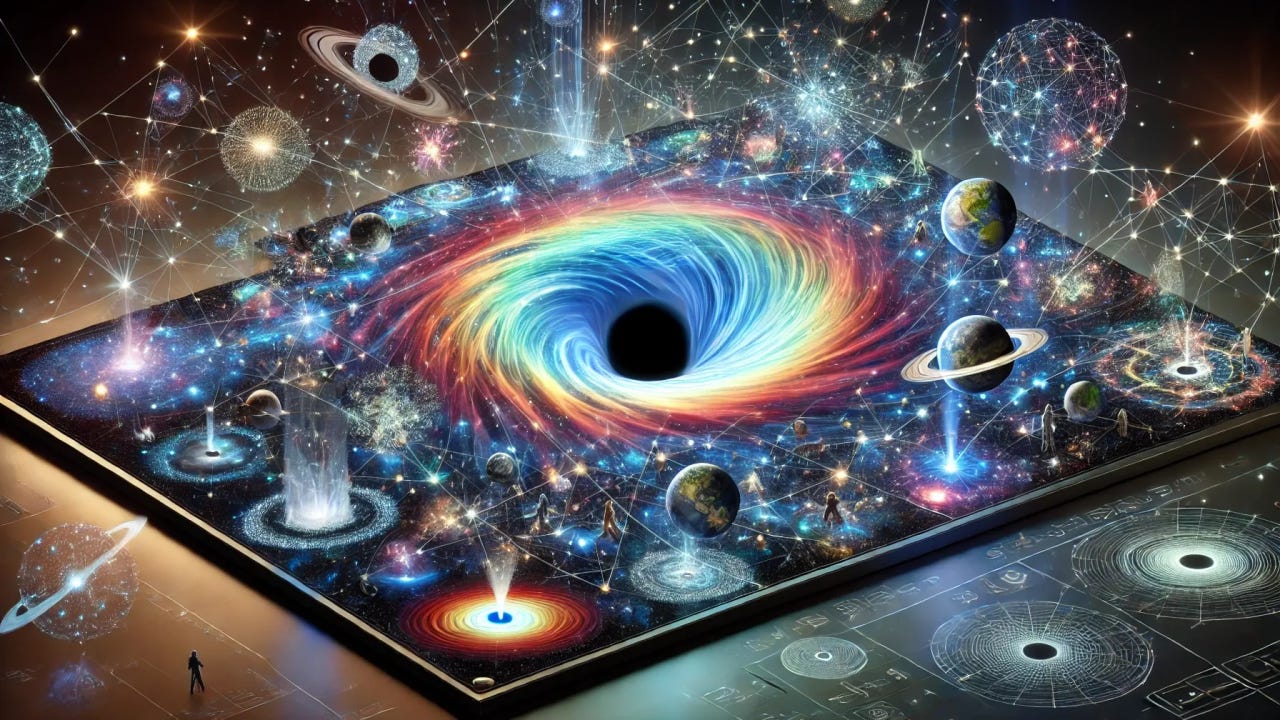
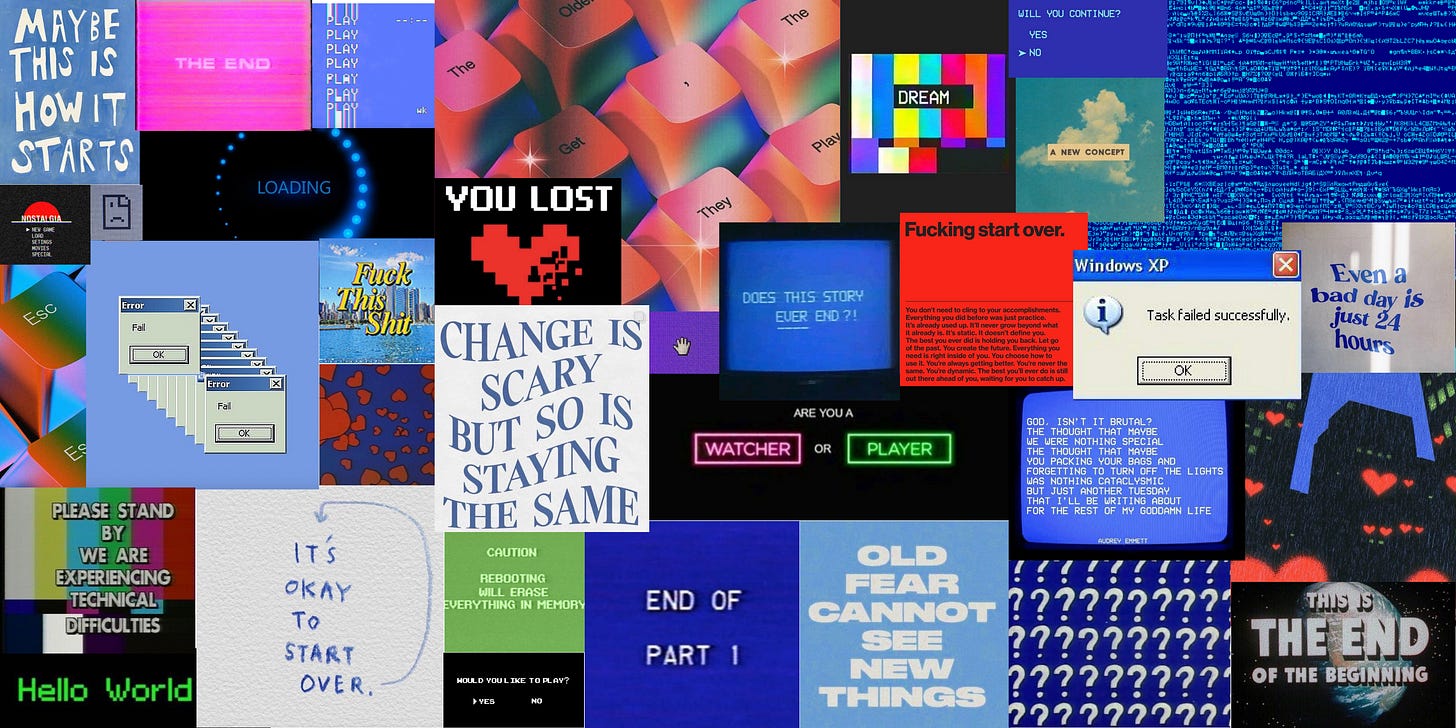

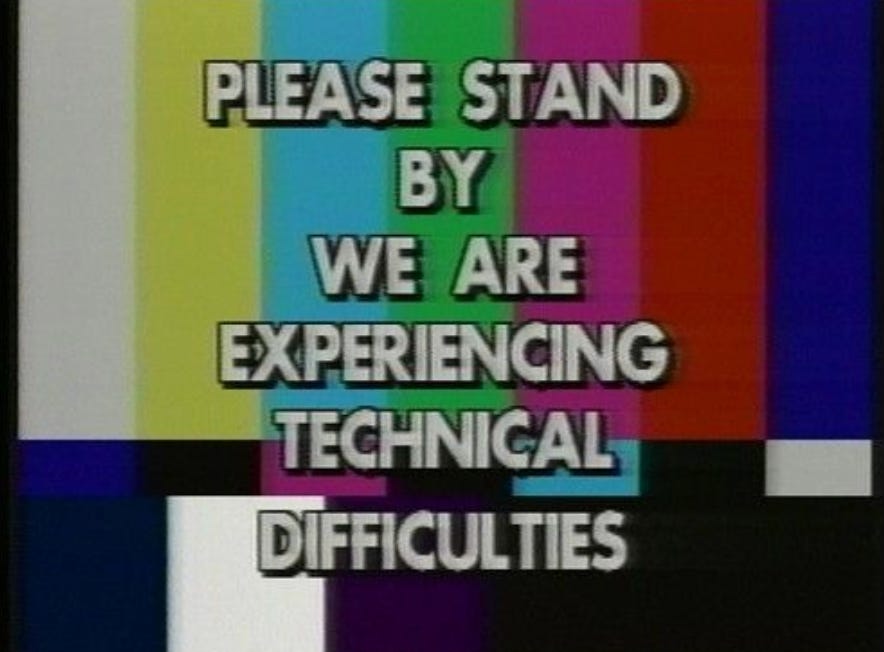



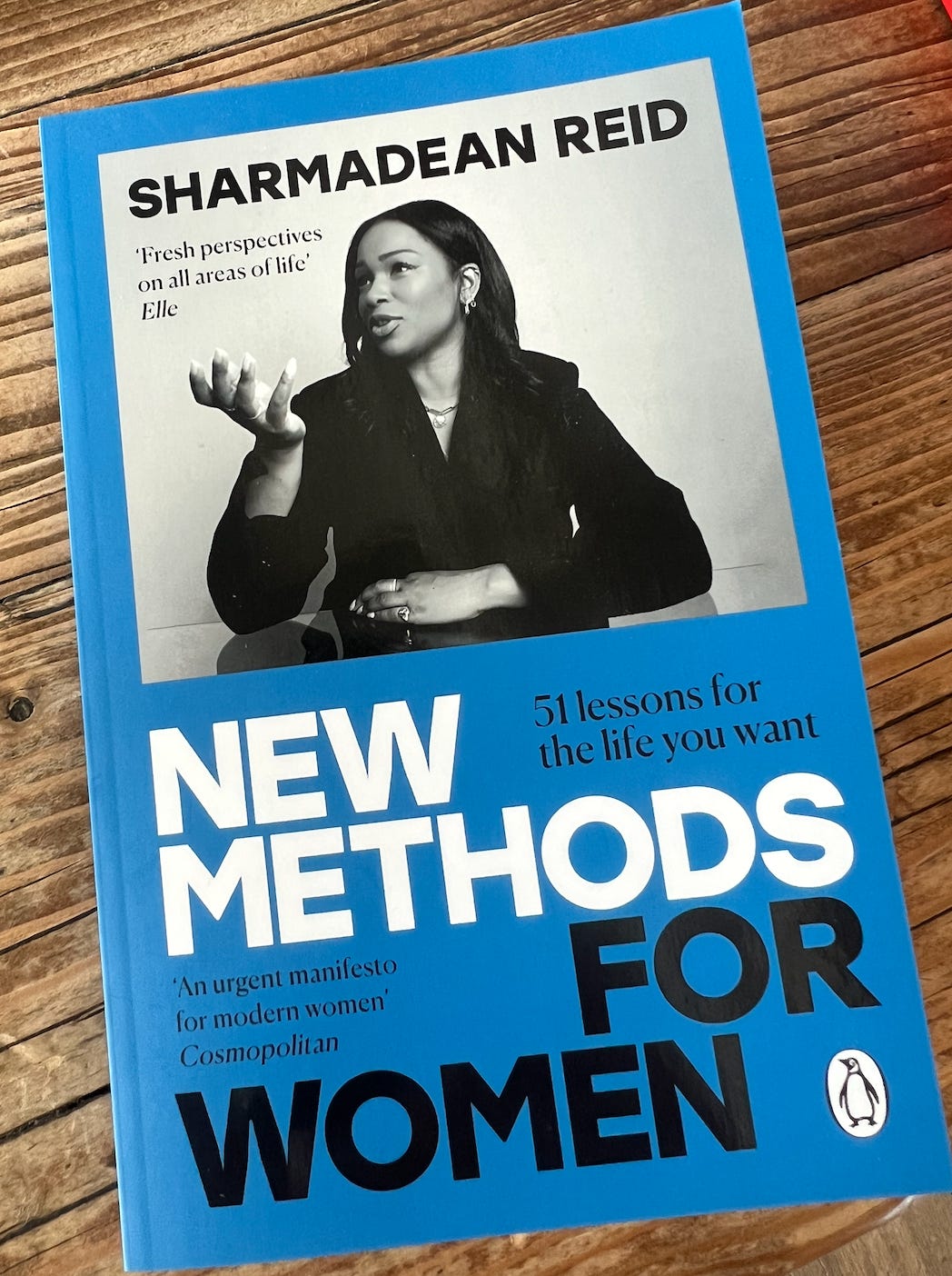
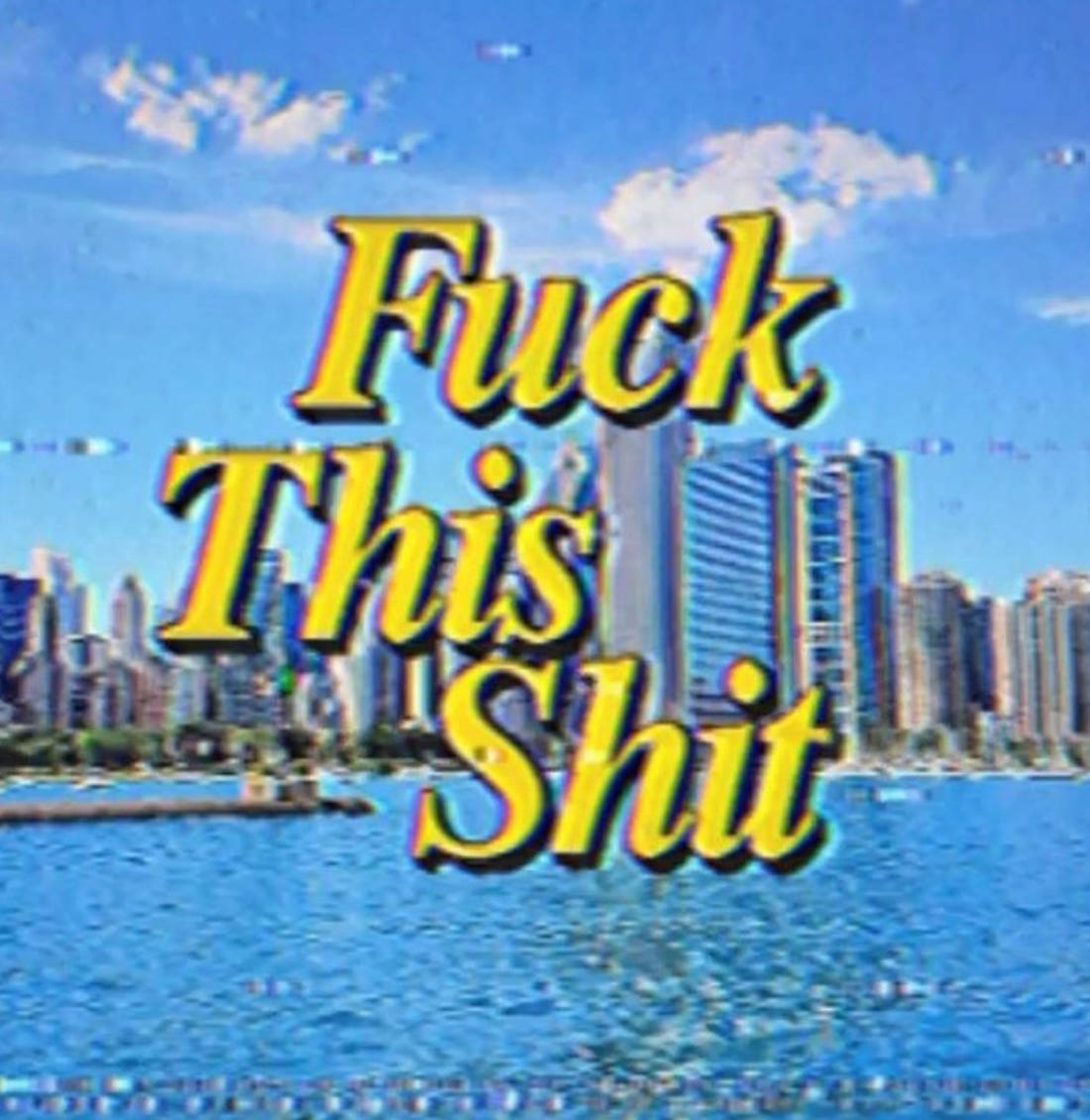

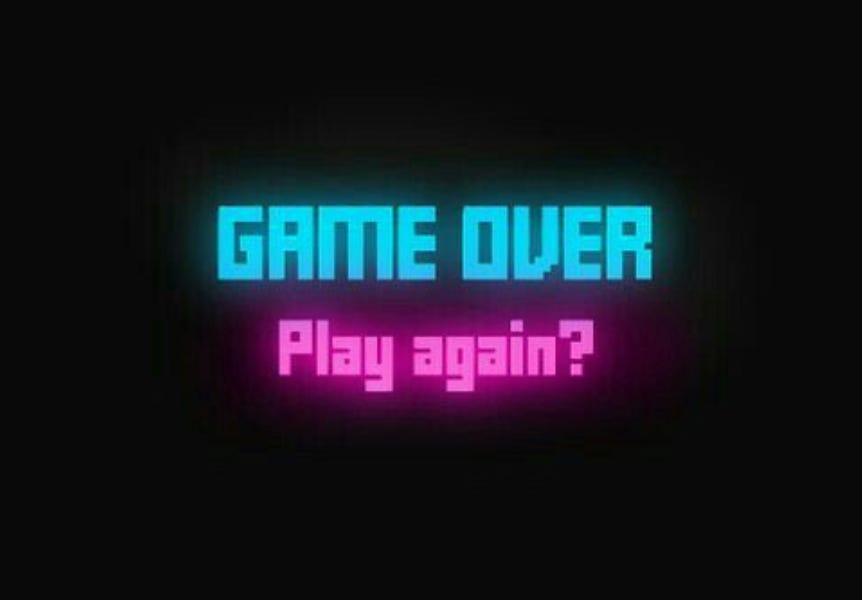
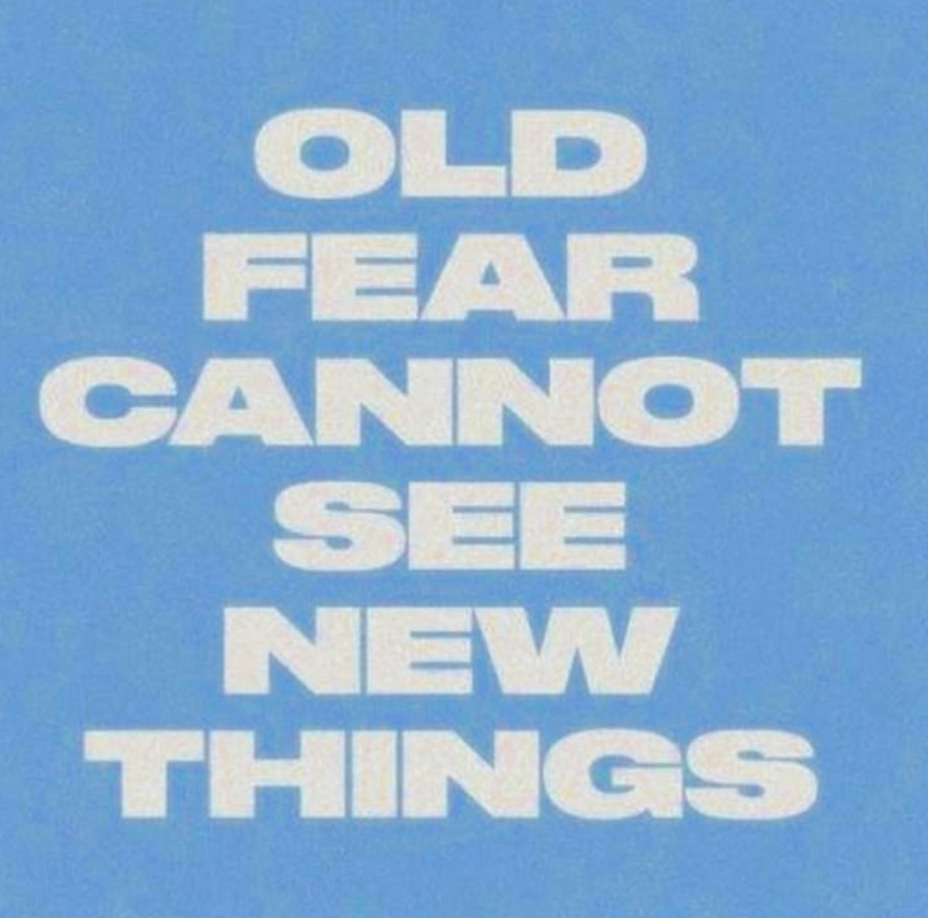

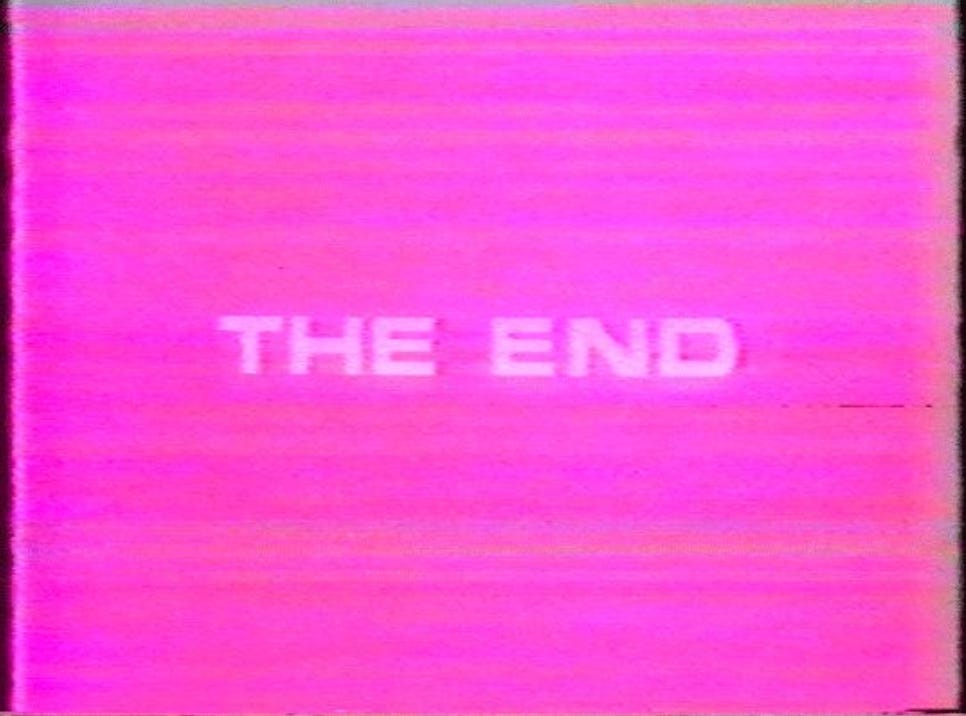

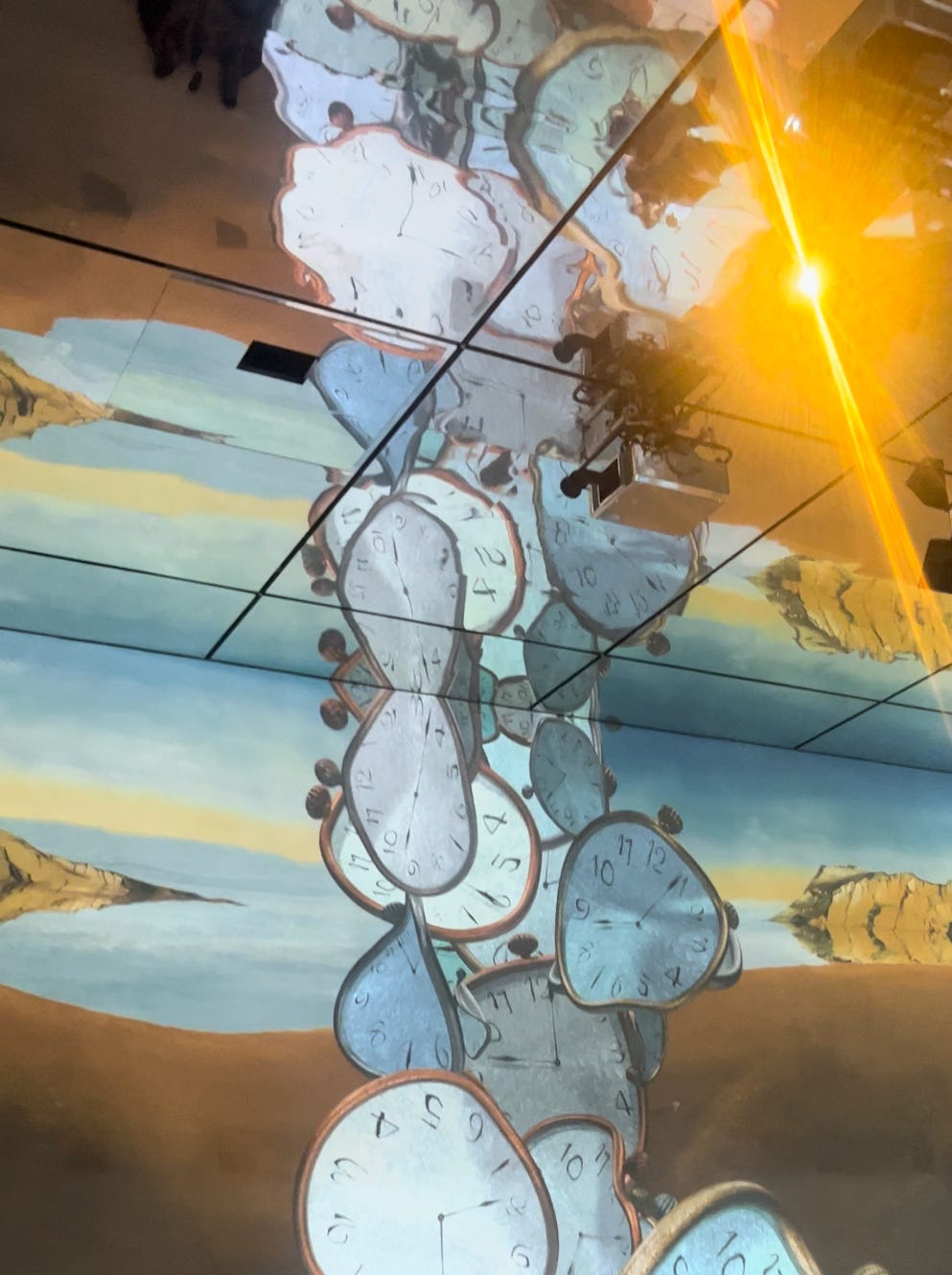
dear Katie, thanks you for this beautiful piece, that is so pleasant just like a chat with a caring friend, I absolutely needed it today. All the mind work you did impress me deeply, you can be proud of your growth and clarity. I know pain must still be so hard to endure, but your spirit is so light. Inspiring and inspired. x, Mimi.